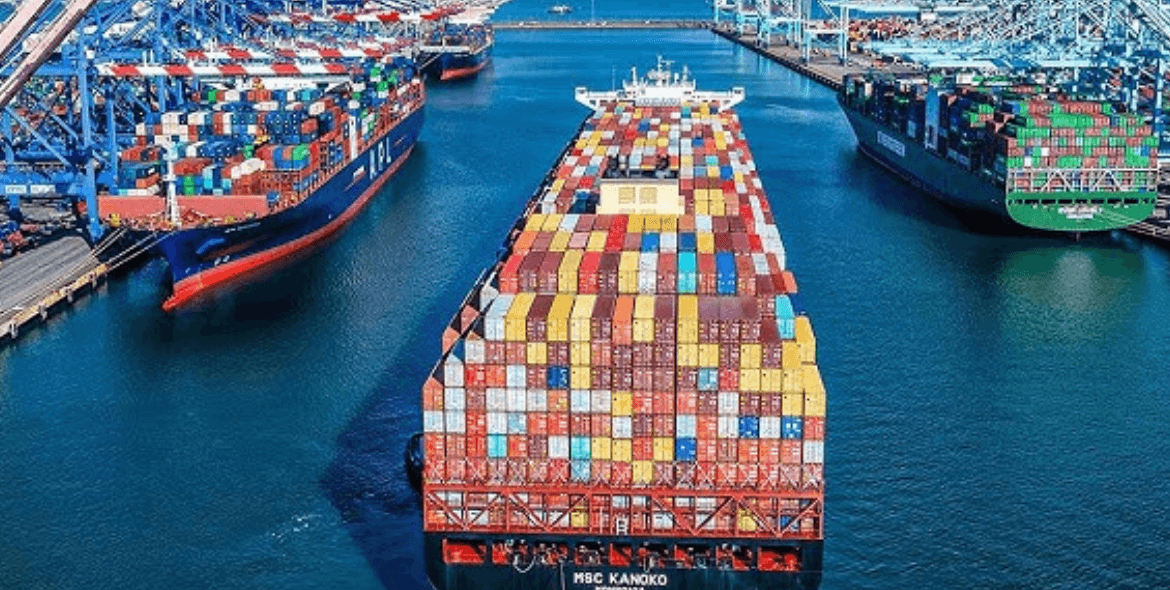Shipping and port management are critical to the global economy, as they facilitate the movement of goods, enable international trade, and support economic growth. Efficient shipping and well-managed ports are essential for connecting producers with markets worldwide, influencing everything from the cost of goods to environmental sustainability. Here’s a closer look at why shipping and port management matter and the roles they play in today’s interconnected world.
1. Facilitating Global Trade
Economic Backbone: The shipping industry moves over 80% of the world’s trade volume, handling millions of containers and bulk cargos that transport everything from food and electronics to raw materials. Without shipping and well-organized ports, the movement of goods across countries would be significantly slower and costlier.
Connecting Markets: Ports serve as hubs that connect producers to consumers across the globe. They enable access to foreign markets for local businesses and make imported goods accessible to consumers. This connectivity drives competition, encouraging better prices and choices in the market.
Boosting Economic Growth: Efficient port operations create jobs, foster infrastructure development, and attract investments. In developing countries, ports can be particularly transformative, providing the infrastructure needed for economic expansion.
2. Optimizing Supply Chains
Efficiency and Speed: Ports play a central role in supply chains by enabling faster, more efficient shipping processes. Effective port management minimizes congestion, reduces delays, and ensures goods are loaded and unloaded quickly.
Cost Savings: Efficient port management helps reduce the costs of storage, handling, and transportation. This cost efficiency can reduce overall logistics costs for businesses, ultimately lowering the price of goods for end consumers.
Reliability and Predictability: Well-managed ports improve the reliability of supply chains by minimizing unexpected delays, which is essential for industries like manufacturing, retail, and e-commerce that depend on timely deliveries.
3. Environmental Sustainability
Reducing Carbon Emissions: As global shipping relies primarily on fossil fuels, ports have a significant environmental footprint. By implementing sustainable port management practices—like green energy initiatives, better traffic flow, and reduced congestion—ports can lower emissions and contribute to global sustainability goals.
Sustainable Infrastructure: Many modern ports are investing in sustainable infrastructure, such as electric-powered cranes, renewable energy sources, and waste management programs. This shift helps mitigate the environmental impact of port activities and reduces energy consumption.
Cleaner Shipping Practices: Ports can also encourage or require shipping lines to use cleaner fuel types, participate in carbon-offset programs, or reduce engine emissions while in port, contributing to cleaner air and healthier coastal communities.
4. Technological Advancements
Digitalization: Technology is revolutionizing port management, from automated cranes and robotics to blockchain-based tracking systems that provide transparency. These advancements allow for better cargo tracking, real-time data insights, and increased port efficiency.
Artificial Intelligence and Automation: AI systems can help manage traffic flow, optimize container placement, and predict port needs. Automation speeds up processes, allowing ships to load and unload faster, which is particularly important as global demand increases.
Cybersecurity: As ports become more digitized, managing cybersecurity risks is essential to protect sensitive data and prevent disruptions that could impact trade.
5. Ensuring National Security
Customs and Border Security: Ports are vital for national security, as they serve as entry points for goods and people. Effective port management includes strict customs and security checks to prevent illegal activities such as smuggling and trafficking.
Preventing Terrorism: Ports and the shipping industry face security risks, including terrorism and piracy. Managed security protocols, tracking systems, and close cooperation with international security agencies are essential to safeguard port facilities.
Disaster Preparedness: Ports are often located in areas prone to natural disasters, making it essential for port managers to have disaster-preparedness plans in place. Effective management ensures quick recovery, minimizing disruptions to trade.
6. Economic Stability and Resilience
Crisis Response: Ports play a crucial role in times of crisis, such as natural disasters, pandemics, or conflicts, by ensuring the flow of essential goods like medical supplies and food. Well-managed ports can quickly adapt to changing demands and respond to supply chain disruptions.
Economic Resilience: Ports that invest in resilient infrastructure are better equipped to handle global economic shifts, like fluctuating trade volumes or economic downturns. Such adaptability supports overall economic stability in connected regions.
Conclusion
Shipping and port management are central pillars of the global economy, impacting trade, supply chain efficiency, environmental health, and security. As the demand for international trade grows, the importance of efficient, sustainable, and secure port operations will only increase. With continued investments in technology, sustainable practices, and infrastructure, ports can enhance their contribution to economic development and play a crucial role in building a resilient and sustainable future.

